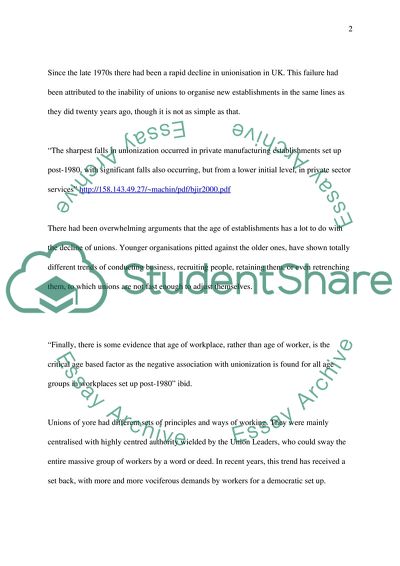Cite this document
(British Trade Unions Today Assignment Example | Topics and Well Written Essays - 2250 words, n.d.)
British Trade Unions Today Assignment Example | Topics and Well Written Essays - 2250 words. https://studentshare.org/macro-microeconomics/1704334-trade-unionism-in-the-uk-is-in-terminal-decline-and-no-longer-has-a-role-in-employee-relations-discuss
British Trade Unions Today Assignment Example | Topics and Well Written Essays - 2250 words. https://studentshare.org/macro-microeconomics/1704334-trade-unionism-in-the-uk-is-in-terminal-decline-and-no-longer-has-a-role-in-employee-relations-discuss
(British Trade Unions Today Assignment Example | Topics and Well Written Essays - 2250 Words)
British Trade Unions Today Assignment Example | Topics and Well Written Essays - 2250 Words. https://studentshare.org/macro-microeconomics/1704334-trade-unionism-in-the-uk-is-in-terminal-decline-and-no-longer-has-a-role-in-employee-relations-discuss.
British Trade Unions Today Assignment Example | Topics and Well Written Essays - 2250 Words. https://studentshare.org/macro-microeconomics/1704334-trade-unionism-in-the-uk-is-in-terminal-decline-and-no-longer-has-a-role-in-employee-relations-discuss.
“British Trade Unions Today Assignment Example | Topics and Well Written Essays - 2250 Words”. https://studentshare.org/macro-microeconomics/1704334-trade-unionism-in-the-uk-is-in-terminal-decline-and-no-longer-has-a-role-in-employee-relations-discuss.


